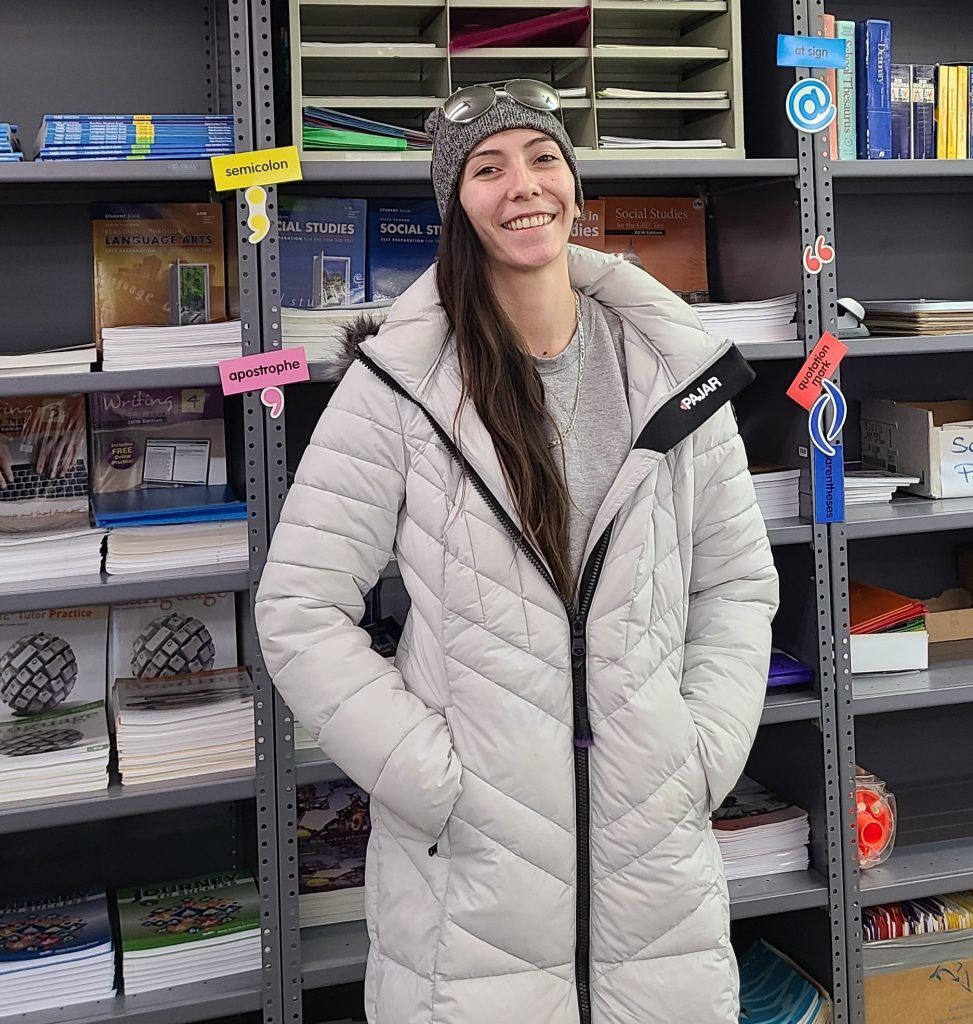By Shania L Malaterre, Turtle Mountain Community College GED Graduate

Shania L Malaterre, Turtle Mountain Community College GED Graduate
My name is Shania Malaterre, and I am a recent GED graduate from the program at Turtle Mountain Community College (TMCC) in Belcourt, North Dakota. I have lived in this area pretty much my whole life. I am twenty-four years old and a single mom of two beautiful little girls. My girls were my biggest inspiration for getting back into school; I believe that I must take the first step so I can show them the next. I came to TMCC years ago to try and finish getting my GED, but life happened and took me for a crazy twist. I still tried every chance I got, but not being in school for so long, I got discouraged and just felt like I couldn’t do it. So, I moved away to try for a better life and a fresh new start. However, I still felt like I had failed because I had never graduated from high school and hadn’t succeeded in getting my GED. This just kept me constantly thinking and wondering, “When will I graduate? Will I even graduate?” and “Am I going to live the rest of my life wishing I had finished?” All those thoughts and feelings got to be too much after so many years, so I moved back home to try again.
One day, I was leaving an appointment and I started getting an anxious feeling as I pulled up to a stop sign. It was like my brain and body were trying to tell me what I should do next, so I stayed stopped for a minute. I could either turn left and go home, or I could turn right and go to Belcourt. When I thought about turning left, something said, “You’ve got more you’ve got to take care of”. Suddenly, I have these options: go home or do something else. Except the feeling of wanting to do something else was more like that urgent feeling you get when you’re about to miss an appointment or be late for work. So, I followed that feeling; I turned toward Belcourt and as I got closer, the feeling got worse and worse. That feeling didn’t go away until I pulled up to the old college and signed up for my GED.
I felt so much better about myself after that. It was like all this weight was being lifted off my shoulders. After those first two weeks, I felt like a new person. It felt so good to get up and go to class every morning, because every day I would get greeted by the staff saying, “Good morning! You ready to get that diploma?” and “I knew you were going to pass that test – you’re so smart!” Hearing stuff like that was just great and made me feel proud of myself for getting as far as I had. But, since I wasn’t working, I had to worry about how I was going to pay for gas to get to class every day. So, I asked Sandi, the adult education program director, if there was any support to help with this challenge, and she connected me with the Wiichihin program. The Wiichihin program is specifically for students that are coming to class and need help with transportation and/or meal costs. How awesome is it to have support like that?
Coming to TMCC’s adult education program was a smart choice for me, because now I have my GED and even found my passion for learning again! I graduated in December 2023, and I can honestly say that I couldn’t have done it without all the positive support from my family and my instructors. A huge thanks to Sandi, Bill, Harold, Scott, and Jen for all their help and positive support! After all these years of trying over and over, they finally got to see me graduate and continue on to college! I must also give a huge thanks to TMCC’s Wiichihin program, supported by the American Indian College Fund, for making it so much easier to get back and forth to class. Thank you all!
